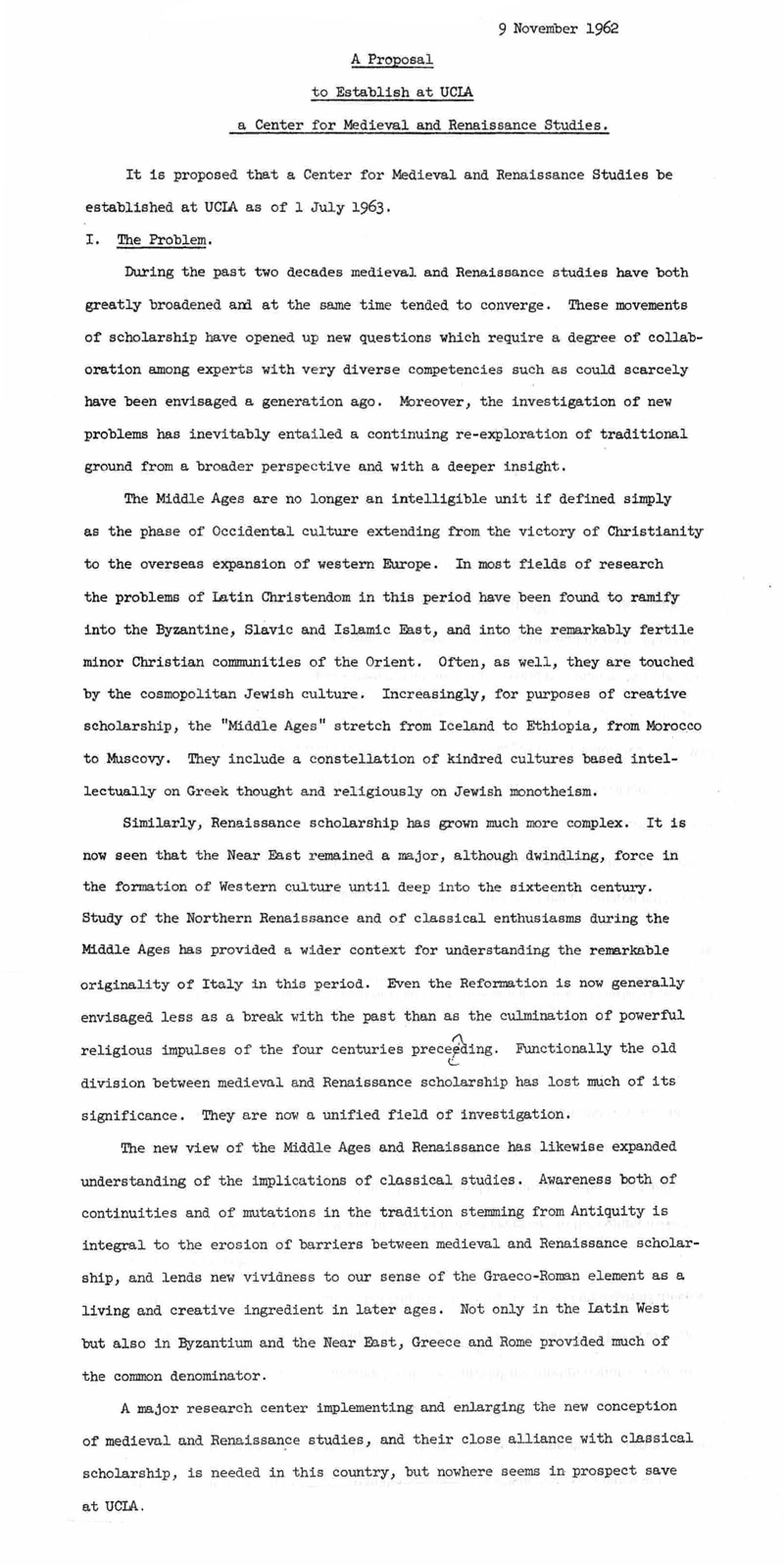Mission and Axis-Based Research
Our Mission
UCLA’s CMRS Center for Early Global Studies promotes and sustains transdisciplinary studies of the period from the 3rd to the 17th century C.E. across the globe. The Center applies a new global research model to the challenge of regional world systems, that is, the plurality of early worlds. Five main research axes structure the polyvalent and multi-faceted inquiry of the Center’s diverse faculty: Sustainability-Repurposing; Fluidity-Permanence; Bodies-Performance; Conversion-Mobility; Communication-Archive. All research axes are open to the widest variety of historical and methodological approaches. What are methodologically either cognitive dissonances or concordances are epistemologically a range of shared and global phenomena in an unconnected and early connected world. The Center’s mission is thus grounded in the traditional academic boundaries necessary to the specialized study of the early worlds, while its platform of connected methodologies and epistemologies, in addition to the narrative of spatial and/or temporal connectivities, provides transdisciplinary training and methodological cross-pollination across fields and disciplines, departments, and divisions. Methodology and comparison connect distinct areas of the globe.
The Center has three primary goals:
- To stimulate and support the scholarship and research activities of its affiliated faculty, associates, students, and scholars;
- To foster and prepare the next generation of scholars and researchers by providing educational opportunities, financial, and other support; and,
- To disseminate knowledge, encourage intellectual exchange, and promote Late Antique, Medieval, Renaissance, and Early Modern Studies at the campus, local, regional, national, and global levels.
CMRS-CEGS is dedicated to promoting research, teaching, and new methodologies, both in underrepresented and non-traditional areas of study, and in traditional fields and frameworks. It is guided by the conviction that without the study of the past, the present and the future are inaccessible and opaque.
Current Thematic Priorities
The Center has put forward a set of thematic priorities for a two-year cycle (AY 2023-24 and 2024-25):
- Ecology
- Knowledge
- Memory/Oblivion
- The Senses, Sovereignty/Empire
- Travel and Traveling Forms
Designed to encourage, rather than to limit, these themes offer resonant anchors for our work. They can be taken up as stand-alone themes or can be combined in different ways, e.g., Knowledge and Empire, Sovereignty vs. Empire, Knowledge and Senses. They are intended as large containers to be shaped according to specific interests. By way of example, and not limited to the above list, “Traveling Forms” can be about forms of travel, but also about music or architectural forms (on a different chronology, e.g., European vs. Spanish American “Renaissance”), lyric forms that did and did not travel (e.g., Occitan, Persian, Arabic), story, dance, and music forms that traveled across Central Asia and south-east Asia, different writing forms. Translation, technologies, religion, and economy can also be viewed from that perspective.
Our History
CMRS Center for Early Global Studies, an Organized Research Unit of the University of California, was founded in 1963 as the Center for Medieval and Renaissance Studies. Since September 2021, it is called the CMRS Center for Early Global Studies or CMRS-CEGS. The original proposal by UCLA History Professor Lynn White Jr. established the foundational principles and continued focus that the Center’s current work expands upon. We hope to reinvigorate and honor Professor White’s scholarly outlook and intellectual scope as well as that of the other faculty who joined him in establishing the Center.
Lynn White Jr. argued for the establishment of CMRS in 1963 because
during the past two decades medieval and Renaissance studies have both greatly broadened and at the same time tended to converge. These movements of scholarship have opened up new questions that require a degree of collaboration among experts with very diverse competencies such as could scarcely have been envisaged a generation ago.
CMRS-CEGS’s plans for the future align with his original assessment that
the Middle Ages are no longer an intelligible unit if defined simply as the phase of Occidental culture extending from the victory of Christianity to the overseas expansion of Western Europe,
a conception that he believed impacted equally the understanding of the Renaissance and of antiquity:
Functionally the old division between medieval and Renaissance scholarship has lost much of its significance. They are now a unified field of investigation. The new view of the Middle Ages and Renaissance has likewise expanded understanding of the implications of classical studies.
In a historical twist, as is often the case, present times imitate the gestures of the past.
Professor White’s scholarship focusing on medieval technology, social change, religion and the historical roots of the present ecological crisis, is enjoying renewed interest. For example:
- https://www.noemamag.com/the-conscious-universe/
- https://muse.jhu.edu/article/777619
- https://www.scu.edu/environmental-ethics/environmental-activists-heroes-and-martyrs/lynn-white.html
- https://conbio.onlinelibrary.wiley.com/doi/full/10.1111/cobi.12735


